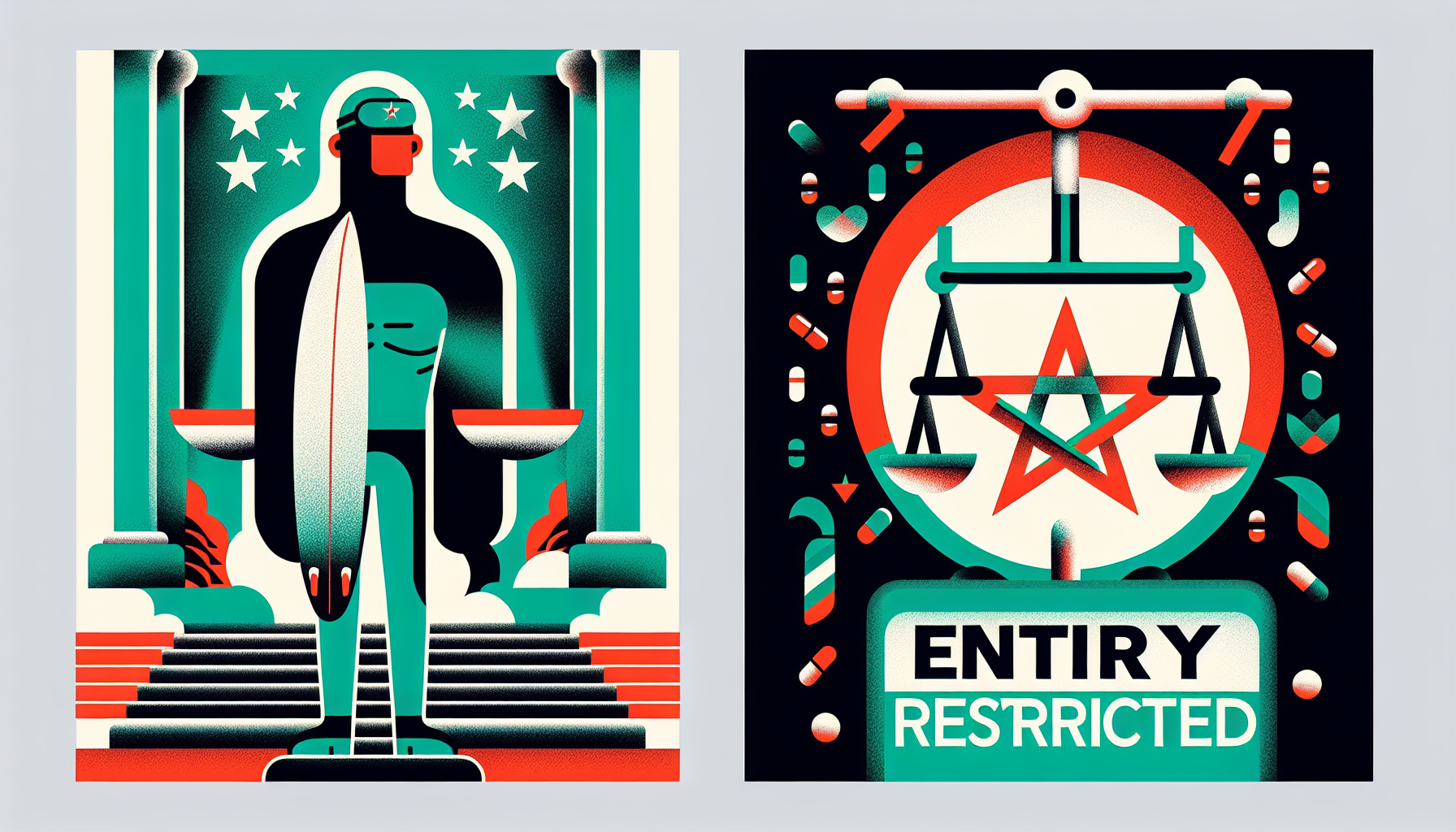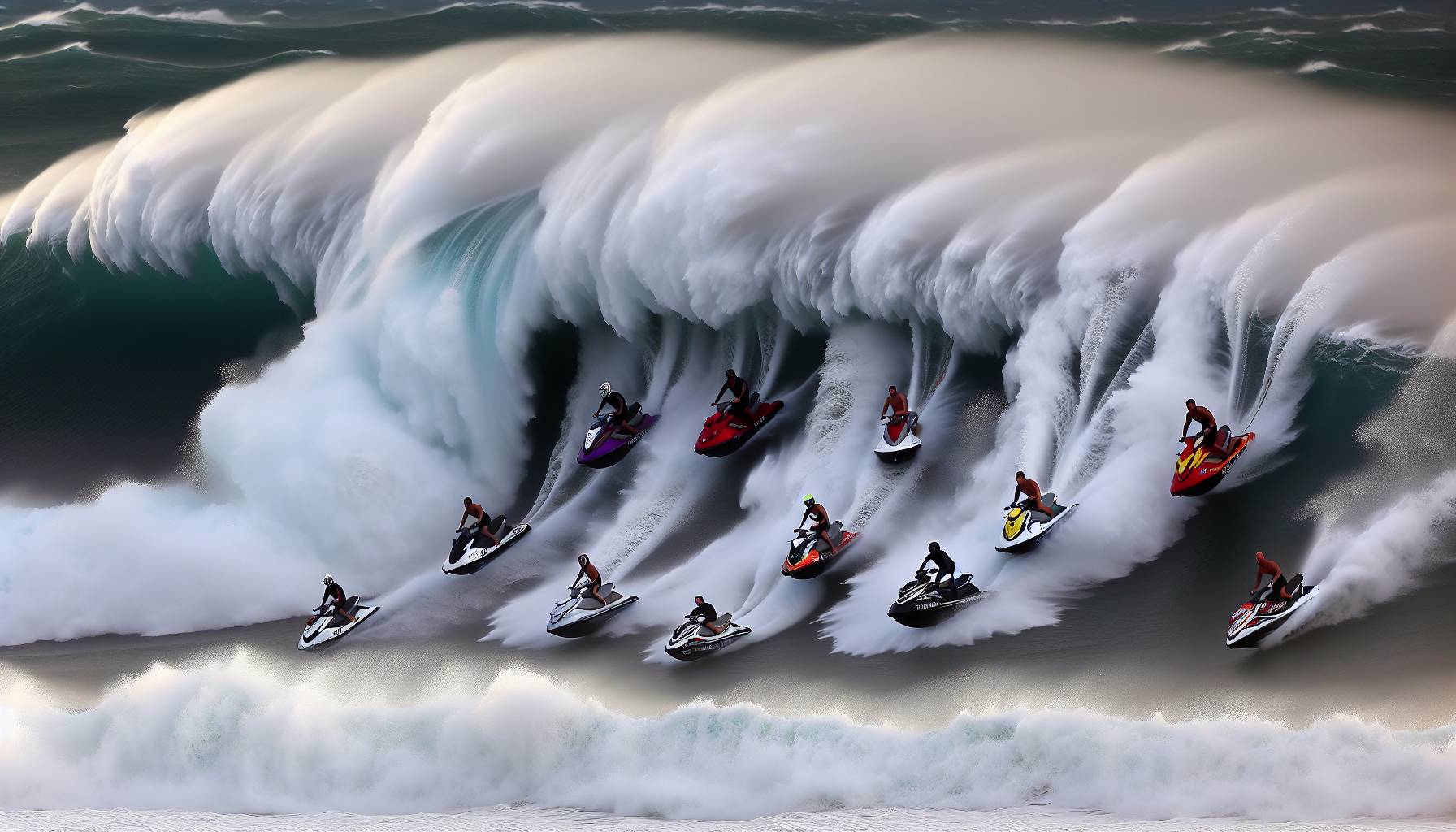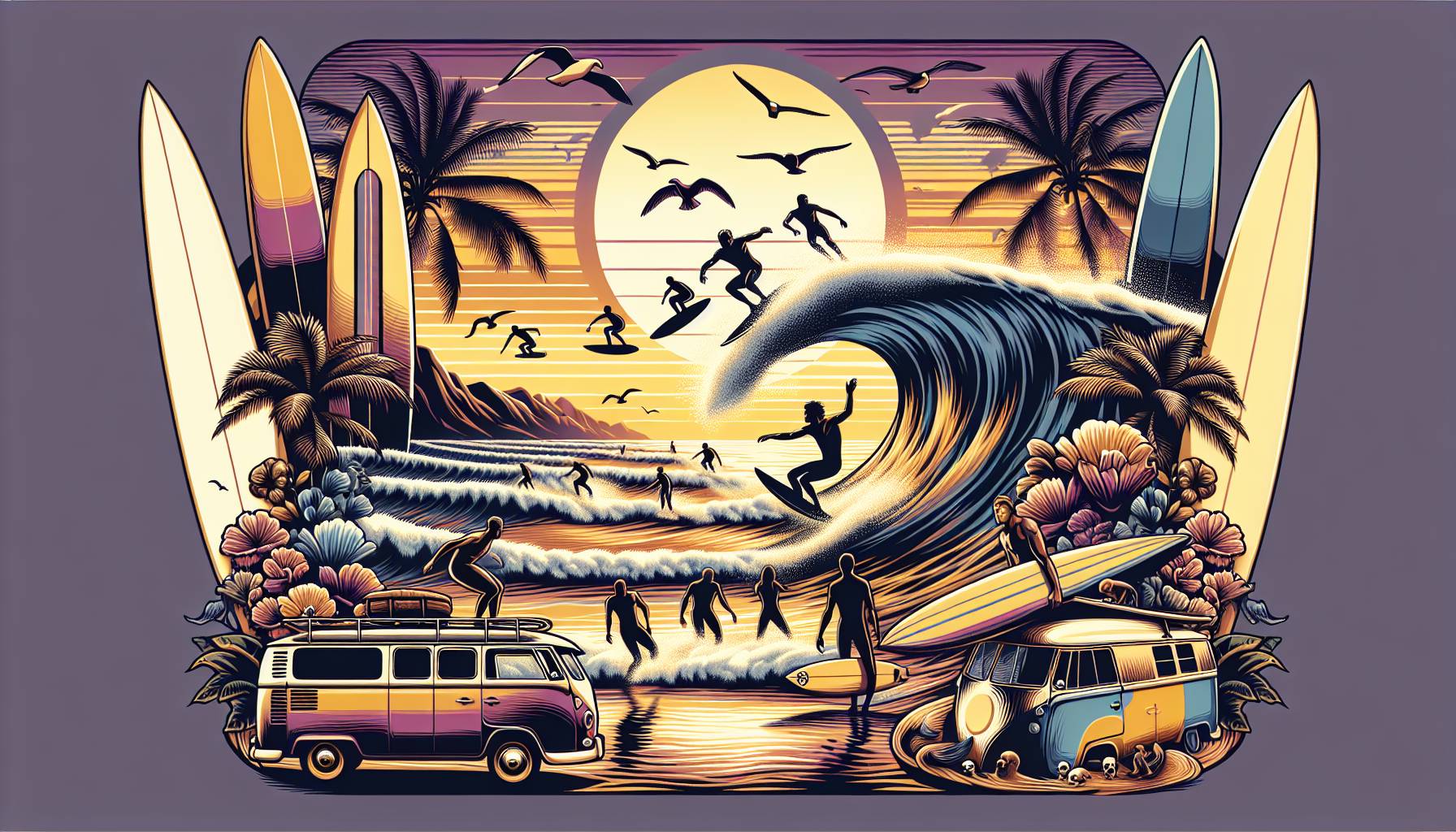
Suspension and drug-related offense
Portuguese surfer Vasco Ribeiro is currently serving a suspension that bars him from competing professionally until 2026. The ban was imposed following a drug-related offense, which has cast a shadow over his career and raised concerns about substance use in professional surfing.
Ribeiro, a former World Junior Champion and a well-regarded competitor on the Challenger Series, tested positive for a prohibited substance during a routine anti-doping test. The exact details of the substance involved have not been publicly disclosed, but the sanction was handed down in accordance with the World Anti-Doping Agency (WADA) regulations, which govern drug testing in professional surfing under the oversight of the World Surf League (WSL).
The suspension has significantly impacted Ribeiro’s career, preventing him from participating in WSL-sanctioned events, including the Challenger Series and potential qualification for the Championship Tour. While doping violations in surfing are relatively rare compared to other professional sports, this case has reignited discussions about the role of drug testing and the consequences for athletes who fail to comply with anti-doping policies.
For Ribeiro, the ban represents a major setback, as he was considered one of Portugal’s most promising surfers. His absence from competition has not only affected his ranking and sponsorship opportunities but has also sparked debate within the surfing community about the pressures athletes face and the measures in place to ensure fair competition.
Attempted return to competition
Despite his suspension, Vasco Ribeiro was reportedly preparing to compete at the Pro Taghazout Bay, a Challenger Series event held in Morocco. His attempted return to competition raised eyebrows within the surfing community, as his ban remains in effect until 2026. Sources close to the situation suggest that Ribeiro had been training intensively and was eager to regain his competitive edge, despite the clear restrictions imposed by his suspension.
It remains unclear whether Ribeiro intended to enter the event officially or if he was merely present to support fellow competitors and maintain his connection to the professional circuit. However, his presence at the competition site sparked speculation about whether he was seeking a way to bypass the ban or if he was hoping for a potential appeal or reduction of his suspension.
The World Surf League (WSL) has strict regulations regarding suspended athletes, and any attempt to compete while serving a ban could result in further disciplinary action. If Ribeiro had attempted to enter the event, it would have likely led to immediate disqualification and potential additional sanctions. The WSL has not publicly commented on Ribeiro’s presence at the event, but officials are expected to monitor any breaches of the suspension closely.
For Ribeiro, the desire to return to competition is understandable. As a former World Junior Champion and a key figure in Portuguese surfing, his career has been significantly disrupted by the suspension. The time away from professional events has not only affected his ranking but also his sponsorship deals and overall standing in the sport. Many athletes in similar situations struggle with maintaining their form and motivation during long suspensions, and Ribeiro’s apparent efforts to stay involved in the competitive scene suggest he is determined to make a comeback once his ban is lifted.
While some in the surfing community sympathise with Ribeiro’s situation, others argue that the rules must be upheld to maintain the integrity of the sport. Anti-doping regulations exist to ensure fair competition, and any attempt to circumvent them could undermine the credibility of professional surfing. As the situation develops, it remains to be seen whether Ribeiro will seek an official appeal or if he will have to wait until 2026 to make his return to the competitive stage.
Implications for professional surfing
Ribeiro’s case has sparked broader discussions about the impact of doping suspensions on professional surfing and the sport’s overall integrity. While anti-doping measures are well-established in other major sports, surfing has historically had a more relaxed reputation, often associated with a free-spirited lifestyle. However, as the sport has grown in professionalism and global recognition, stricter regulations have been implemented to ensure fair competition.
The World Surf League (WSL), in conjunction with the World Anti-Doping Agency (WADA), has been working to maintain a clean competitive environment. Ribeiro’s suspension serves as a reminder that professional surfers are held to the same standards as athletes in other disciplines. While some argue that drug testing in surfing should focus primarily on performance-enhancing substances, others believe that any banned substance use—regardless of intent—undermines the credibility of the sport.
For aspiring surfers, Ribeiro’s situation highlights the potential consequences of violating anti-doping policies. Young athletes looking to break into the professional ranks must be aware of the strict regulations in place and the long-term repercussions of failing a drug test. A multi-year suspension can derail a promising career, affecting sponsorships, rankings, and future opportunities.
From a commercial perspective, doping violations can also impact the sport’s marketability. Surfing brands and event sponsors invest heavily in maintaining a positive image, and high-profile suspensions can create negative publicity. While some companies may continue to support athletes during their suspensions, others may distance themselves to protect their brand reputation. This dynamic places additional pressure on surfers to adhere to anti-doping regulations, as losing sponsorship deals can have significant financial consequences.
Beyond individual cases, Ribeiro’s suspension raises questions about how the WSL and other governing bodies handle doping violations. Some critics argue that the current system lacks transparency, as details about specific substances and the decision-making process are often not fully disclosed. Greater clarity in how suspensions are determined and enforced could help build trust within the surfing community and ensure that all athletes are treated fairly.
As professional surfing continues to evolve, maintaining a balance between fair competition and athlete support will be crucial. While strict anti-doping measures are necessary to uphold the sport’s integrity, there is also a need for education and rehabilitation programs to help athletes navigate the pressures of professional competition. Ribeiro’s case serves as a pivotal moment for the sport, prompting discussions about how best to enforce regulations while also supporting surfers in making informed choices about their careers.
Suspension and drug-related offense
Portuguese surfer Vasco Ribeiro has found himself in hot water, and not the kind he’d prefer. The former junior world champion has been slapped with a suspension that keeps him out of competition until 2026, all thanks to a drug-related offense. Not exactly the kind of wipeout you want on your record.
The International Surfing Association (ISA) handed down the ban after Ribeiro tested positive for a prohibited substance. While the specifics of the substance haven’t been widely publicised, the ruling was clear—he’s off the tour for a while. Tough break for a guy who’s spent his life chasing waves, not trouble.
Ribeiro, a well-known figure in European surfing, has had his fair share of highs and lows in the sport. But this latest setback is a serious one, putting a major dent in his competitive career. With the suspension running until 2026, he’s looking at a long stretch out of the water—at least when it comes to official events.
For a surfer of his calibre, missing out on prime years of competition is a brutal blow. But if there’s one thing surfers know, it’s how to take a hit and paddle back out. Whether Ribeiro can bounce back from this remains to be seen, but for now, he’s stuck on the sidelines, watching the sets roll in without him.
Preparation for Pro Taghazout Bay
Despite the ban, Ribeiro hasn’t exactly been sitting on the beach twiddling his thumbs. Word on the sand is that he was gearing up to compete at the Pro Taghazout Bay, one of Morocco’s premier surf events. Bold move, considering he’s technically not allowed to compete until 2026. Either he’s got a serious case of wave withdrawal, or he’s hoping no one would notice a world-class surfer sneaking into the lineup.
Training like a man on a mission, Ribeiro has been spotted putting in the hard yards, fine-tuning his technique and keeping his fitness levels up. Suspension or not, the bloke clearly isn’t ready to let go of the competitive fire just yet. And let’s be honest, if you’ve spent your life chasing barrels, sitting on the sidelines for years isn’t exactly an easy pill to swallow.
Taghazout Bay is known for its long, peeling right-handers, the kind of waves that make a surfer’s heart race. It’s the perfect playground for someone of Ribeiro’s calibre, which makes his attempted return all the more tempting. But with the suspension still in place, the big question remains—was he really planning to paddle out, or was this just a case of wishful thinking?
Either way, it’s clear that Ribeiro isn’t ready to fade into the background. Whether he’s training for an eventual comeback or just keeping the dream alive, one thing’s for sure—this bloke isn’t done with surfing just yet.

